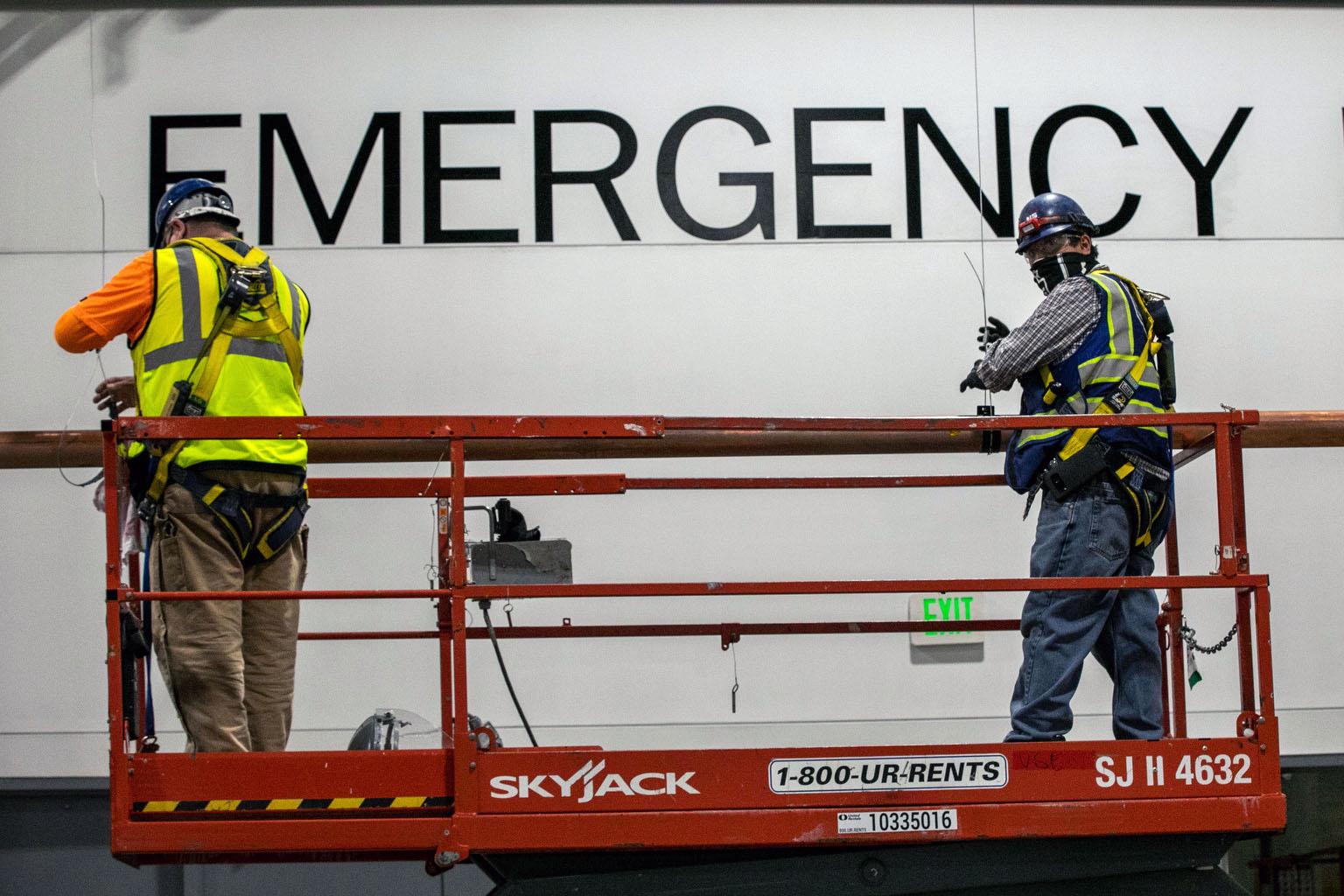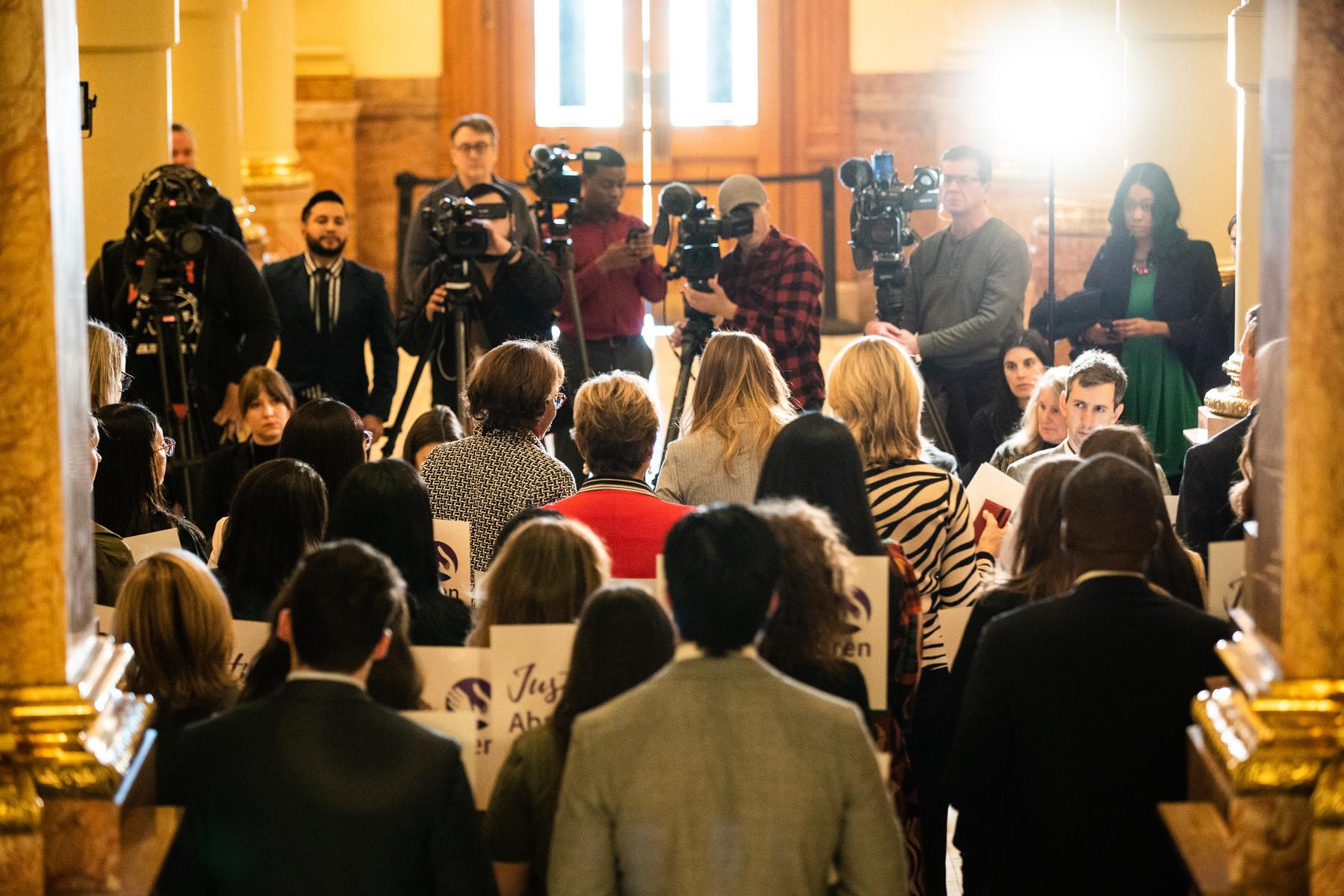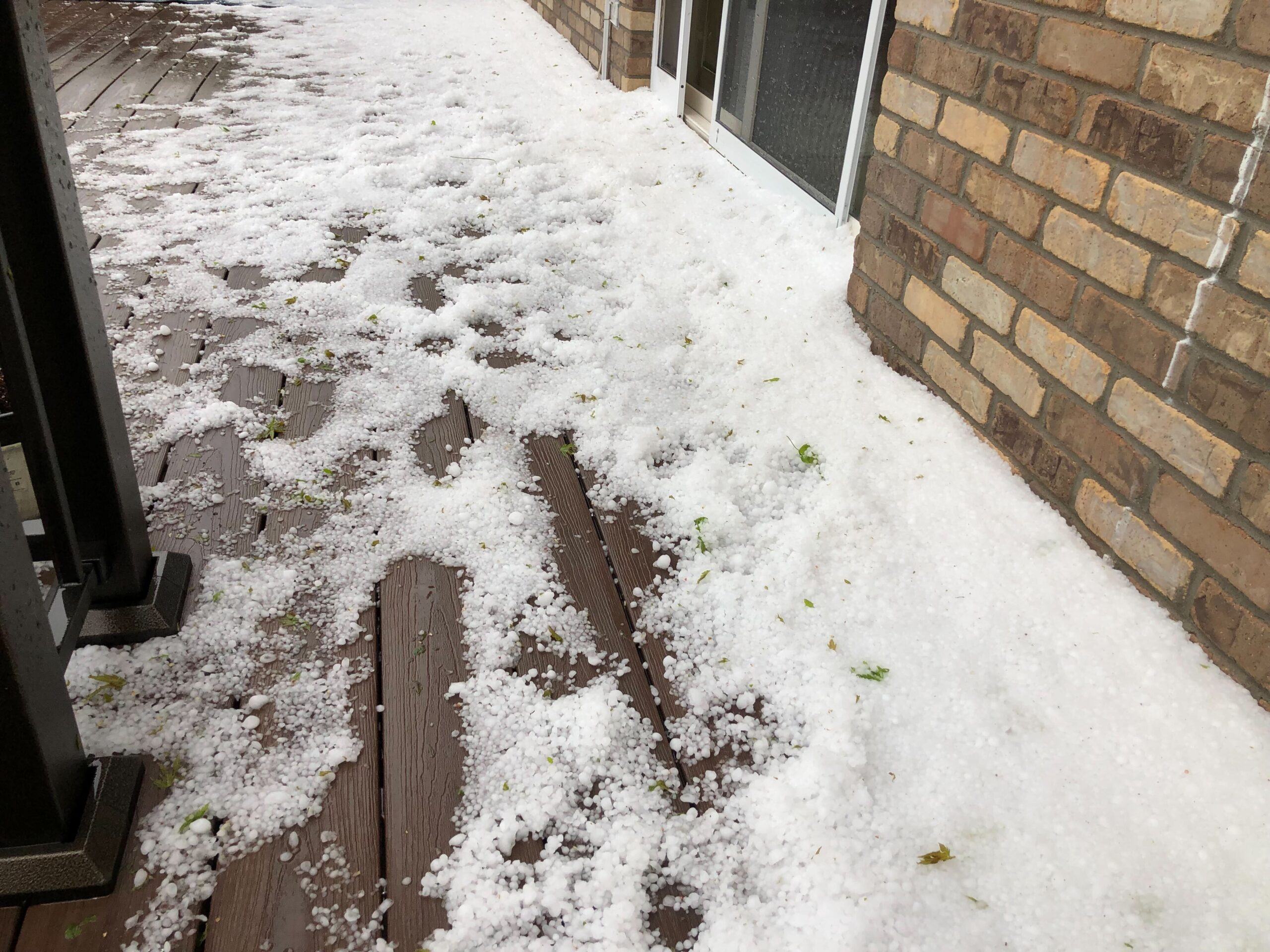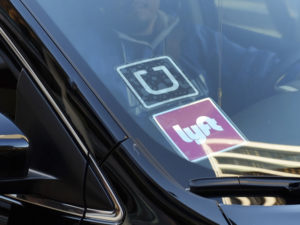
With the coronavirus pandemic cratering the economy and normal life at a standstill (though soon to start slowly returning), federal leaders have rushed to use federal dollars to blunt some of the pain. So far, Congress and President Donald Trump have approved more than $2 trillion in three COVID-19 related stimulus bills, with more likely to come.
CPR News is tracking the money that’s coming to the state, and how it’s expected to be spent. There are things we’re waiting to learn and things we’ve already learned.
Here’s what we’re still watching for:
- USDA: The Secretary of Agriculture, Sonny Perdue, announced on Friday the creation of a Coronavirus Food Assistance Program. It will provide $16 billion in support to farmers, ranchers and other agricultural producers. USDA will use $3 billion to buy fresh produce, dairy and meat, which will be distributed to food banks and non-profits helping people in need. Colorado Sens. Michael Bennet and Cory Gardner have urged Perdue to “fully consider the challenges facing Colorado’s farmers, ranchers, and rural communities.” They are also lobbying for part of the $14 billion that will help bolster USDA’s Community Credit Corporation, which provides loans and other financial assistance to the industry.
- FEMA: The agency awarded more than $21 million to Colorado. More than $16.6 million is through the Public Assistance program for COVID-19 response. It’s expedited funding for the purchase of PPE in March and April. Additionally, $4 million went to leasing the Colorado Convention Center as a temporary hospital facility, Denver International Airport will get $2 million to protect workers and travelers, and another $1.5 million was announced for other emergency protective measures. There are other funding notices still out. FEMA received $45 billion for the Disaster Relief Fund for the immediate needs of state, local, tribal and territorial governments, as well as $400 million in federal assistance through the CARES Act.
Here’s what we already know about:
Direct aid to individuals
A major priority for congressional lawmakers has been to get money directly into people’s hands (and bank accounts). Starting this week, a person earning less than $100,000 can expect to get up to $1,200 and an additional $500 per child. Payments phase out for individuals with adjusted gross incomes over $75,000 ($150,000 for couples).
Another avenue to get people money: bolstering unemployment insurance. The federal government is providing an extra $600 per week, in addition to what the state pays out in unemployment. The CARES Act also expanded UI eligibility to include part-time and gig workers.
An additional $1 billion for unemployment insurance will be distributed to states nationally. To be eligible, states must loosen unemployment insurance eligibility requirements and waive work search requirements. The Colorado Department of Labor and Employment is working to determine Colorado’s portion of the money.
Expanded nutrition programs
Another way Congress is trying to help low-income families is by putting more money into the SNAP program, formerly known as food stamps. The CARES act contains $400 million for SNAP. There is also an additional $500 million nationwide to bolster WIC, the program that provides access to nutritious foods for low-income women, infants and children. Colorado is still trying to figure out the state’s share of these funds.
Finally, Colorado anticipates receiving $2.4 million for programs that deliver meals to older adults in their homes and $1.2 million for Congregate Nutrition that provides meals for older Americans in senior and community centers.
Emergency Family and Medical Leave Expansion and Emergency Paid Sick Leave
Congress has also expanded the benefits available to those workers who are still on the job. Employees are ensured paid leave if they get sick with COVID-19, or have to care for a loved one with the disease. Employers are also required to offer paid time off for workers who have to look after a child while schools and daycares are closed. Employers with more than 500 employees are exempt from these new rules, although most already offer paid leave.
Help for small businesses
The Small Business Administration’s Paycheck Protection Program is a first-come, first-serve forgivable loan program to help small businesses pay rent, utilities, mortgage interests, and keep people on the payroll. According to SBA Colorado, as of April 13, Colorado businesses had been granted 28,469 loans totaling $5.8 billion. The program has spent all the money Congress had allocated and debate is raging in Washington about appropriating more. For now, applications are closed.
There are also several other loan programs bolstered through the stimulus bills, and tax changes that could benefit businesses who retain employees and those who have to take an operating loss.
Aid to the state and local governments
There are many different pots of money in the CARES Act to help state and local governments hurt by plummeting tax revenues, but the biggest is the Coronavirus Relief Fund. It provides $150 billion for state, local and tribal governments. The money is distributed based on population. Under that formula, Colorado is due to receive $2.2 billion. Nonpartisan legislative staff anticipates $1.68 billion will go to the state government. These funds cannot be used to backfill the budget and must be used for necessary expenditures incurred due to COVID-19.
The rest, $560 million, will go to cities and local governments with populations of more than 500,000. Under that limitation, only the city of Denver, and Adams, Arapahoe, El Paso, and Jefferson counties can expect direct payments.
The federal government is also helping state budgets by increasing the federal Medicaid match. That’s estimated to save Colorado $176 million in the current budget year, and up to $351 million in the upcoming fiscal year, depending on how long the disaster emergency lasts.
Much of the money going to states and local governments will come in the form of grants and funds.
- The Congressional Research Service estimates Colorado K-12 schools will receive $121 million from the $30 billion Education Stabilization Fund, to spend on online learning, sanitizing schools and long-term school closure planning.
- CRS also estimates Colorado will receive $167 million from the Higher Education Emergency Relief Fund.
- Additionally, Colorado should get about $44 million through the Education Department’s Governor’s Emergency Education Relief Fund.
- More than $300 million in transit infrastructure grants. The Denver-Aurora area is expected to get $204 million. Colorado Springs gets $21.5 million. And the state will receive $41.6 million to divide among smaller urban areas (Boulder, Grand Junction, Greeley, Longmont, Pueblo, Lafayette), plus $39.7 million to support transit in rural areas with populations less than 50,000.
- $366 million in FAA grants to airports across the state. Denver International Airport is expected to receive the bulk of that money: $269 million.
- $42 million for the Child Care and Development Block Grant, which funds child care subsidies for lower-income working parents.
- $4.8 million for Head Start programs.
- $6.7 million to help election officials adjust to the challenges of the pandemic, out of a national pot of $400 million in election security grants.
- $14.2 million from the Justice Department to help with state and local law enforcement assistance. The Colorado Department of Public Safety is expected to get over $9 million. And $5 million is available to more than two dozen jurisdictions in Colorado through the Bureau of Justice Assistance to help them prepare for and respond to the coronavirus.
Aid to Colorado health facilities
The CARES Act includes $100 billion for hospitals and health care providers. The Department of Health and Human Services’ (HHS) had awarded $361 million in emergency relief funding to 4,696 Colorado healthcare providers who accept Medicare patients and $785,371 in preparedness funding for the Colorado Hospital Association. Other money includes:
- $1.7 million to support 20 health centers around the state from the first coronavirus relief bill (Coronavirus Preparedness and Response Supplemental Funding)
- $24.1 million to support 20 health centers around the state from the $1.32 billion nationwide pot for community health centers in the CARES Act.
- $16 million from the CDC as part of the first coronavirus relief package. The bill included $950 million in state and local public health emergency grants.
- Around $1.2 million to Colorado health providers and organizations serving Coloradans living with HIV.
- More than $4.5 million from the Health Resources and Services Administration for rural health.
- $2 million to help protect behavioral health workers and to fund beds for those infected with COVID-19 who also need access to inpatient behavioral health services.
HHS is still determining the distribution of funds and grants to a wide range of other programs, such as mental health to education and diabetes.
CPR is looking for Coloradans who are affected by this coronavirus money. If you benefit from one of these programs, or if you should be benefiting but there’s something standing in your way, or you’ve been hurt in a way that isn’t addressed by the federal packages so far, let us know. Email us at [email protected] and put “COVID stimulus” in the subject line.
Sources: National Conference of State Legislatures, Congressional Research Service, Colorado Joint Budget Committee Nonpartisan Staff, Treasury Department, Labor Department, Health and Human Services Department, Education Department, FEMA, SBA, Department of Agriculture, Department of Justice, FAA, Transportation Department, CARES Act (H.R. 748), Families First Coronavirus Response Act (H.R. 6201) and Coronavirus Preparedness and Response Supplemental Appropriations Act, 2020 (H.R. 6074).









